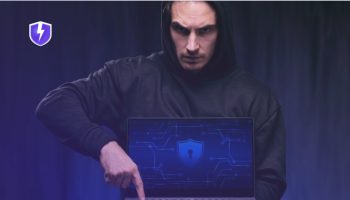Ever wondered who is potentially keeping an eye on what you are doing online? You are not alone. Today’s fight for privacy in the online space is on top gear. On one side are VPNs, or Virtual Private Networks, but on the flip side are data brokers. Let’s dive into what these are and why it matters.
What Are Data Brokers?
Data brokers gather information from multiple sources and then sell it to other businesses. This information may be based on browsing habits, purchase history, location, and sometimes even personal details, such as name or address. They collect this kind of information from the social media sites one uses, from websites, and from many apps used by all of us on a daily basis. A report from the Federal Trade Commission found that some of these data brokers collect over 3,000 data points on almost every US consumer. What do they need all this data for? It’s businesses that buy this data for their targeted ads and products. It’s all about making money by knowing what you might want to buy next. But this raises serious concerns about your privacy.
How Data Brokers Impact Your Privacy
When data brokers mine and vend your information, you lose control over who knows what about you. For example, if a data broker sold your information to a company, that company would start bombarding you with advertisements. Worse, if your data fell into the wrong hands, it could lead to identity theft. A Privacy Rights Clearinghouse study identifies that in the year 2020 alone, around 158 million people were affected by data breaches. This is how sensitive our information can turn into the moment it lies in the custody of other parties.
What Is A VPN?
A Virtual Private Network is a tool to ensure privacy online. When you use a VPN, a secure connection is established between your device and the internet. Your data is jumbled or encoded, creating a code that only you and your VPN provider can read. With a VPN, it becomes quite impossible for data brokers to follow your online activities. It hides your IP address, which is like your digital address, making it impossible for anyone to see where you’re browsing from.
Benefits of Using a VPN
- Enhanced Privacy: VPNs maintain the privacy of your online activities by hiding your IP address and encrypting your data.
- Public Wi-Fi Security: Most public Wi-Fi sites are not secure, but a VPN secures you against hackers attempting to steal your data.
- Access Restricted Content: There are certain websites and services that are restricted based on your location. VPNs make it possible for you to bypass such restrictions and access anything in the world.
Indeed, research from GlobalWebIndex indicates that more than a quarter, 26% of web surfers globally have accessed a VPN in the past month. It shows how much VPNs are growing in popularity, with people more concerned about protecting their privacy online.
The Clash: VPNs vs. Data Brokers
Now that we know what VPNs and data brokers are, let’s see how they compare in the battle for your privacy.
Data Collection and Use
- Data Brokers: Collect and sell your data without your explicit consent. This usually entails very sensitive information, and in most cases, you have no idea who exactly is in possession of your information.
- VPNs: Do not collect personal data. Most of the well-known VPNs have a no-logs policy, which means they do not track your online activities.
Control Over Your Data
- Data Brokers: There is little to no control over what data can be collected about you, nor on the use of that data. Most opt-outs are unwieldy and at best partially effective.
- VPNs: You have control over whether you turn your VPN on or off. When on, users can stay assured that their data is secured.
Implication for Everyday Life
- Data Brokers: They can have an implication for your everyday life in the form of targeted advertisements, spam, and most likely privacy violations.
- VPNs: Improves your online life every day by providing security and access to global content without threatening your privacy.
Think about shopping online for a new pair of shoes. Without a VPN, data brokers track your shopping habits and sell this info to shoe companies. It won’t be long before you start seeing more advertisements about shoes than you ever imagined for any website you visit. But if you use a VPN, then all of your online shopping behavior is masked. The data brokers can’t see what you’re searching for, and you’ll get targeted less with advertisements.
Choosing the Right VPN
All VPNs are not created equal, but there is a level of truth to what he said. The following are some of the tips to choose a good VPN:
- Go through the privacy policy; establish whether it is no-logs; this means it has no record of one’s online activities.
- Strong encryption: Make sure the VPN in question employs strong encryption standards that will protect your data.
- Read reviews from other users on VPN performance and reliability.
A study by Consumer Reports found that some free VPNs may not be as secure as they claim, so it often pays to pay.
The Future of Online Privacy
As technology continues to evolve, the battle for privacy between VPNs and data brokers will likely intensify. Governments are starting to make the first moves toward protecting consumer data, such as through the General Data Protection Regulation in Europe. These regulations make an attempt at giving consumers more control over their own data and limiting what companies can do with them. Meanwhile, using a VPN is one of the most potent ways to take control of your online privacy. You’ll have a safer and private online experience when you make it hard for data brokers to collect and sell your information to resell.
In the ongoing battle over internet privacy, VPNs and Data Brokers are on opposite sides. On one hand, Data Brokers go on collecting and selling your personal information to rake in millions of profits. On the other hand, a VPN acts to keep your online activities private, with features that give you sovereignty over your data. Understanding the roles these entities play helps you know how to protect your privacy, just like protecting yourself by the use of a VPN.


